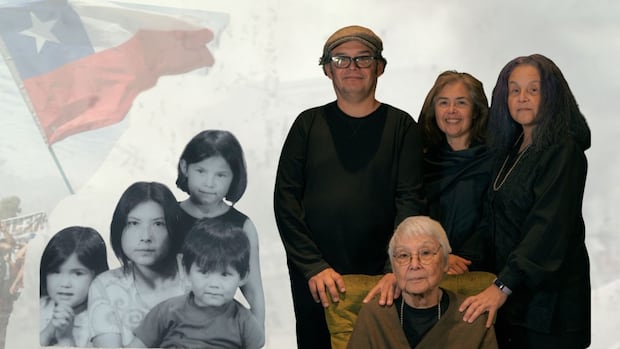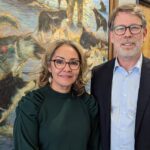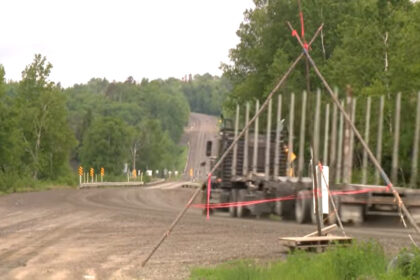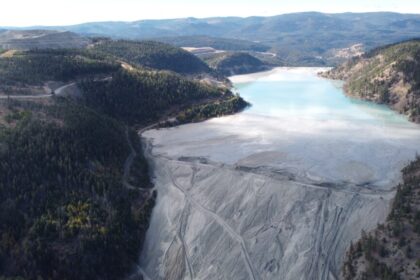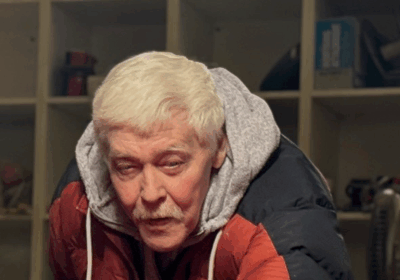CBC Ottawa’s Creator Network is a place where young digital storytellers from diverse backgrounds can produce original video content to air on CBC and tell stories through their own lens.Get in touch to pitch your idea, or check out our other Creator Network stories at cbc.ca/creatornetworkott.When he was very young, Sebastian Decter heard whispers of what his family had lived through in Chile after the coup. “I have an early memory of my mom telling me about how she doesn’t like guns,” the now 27-year-old recalls.His mother was eight years old when, on Sept. 11, 1973, Chile’s democratically elected socialist president Salvador Allende was overthrown in a military coup d’état led by Gen. Augusto Pinochet, with the backing of the CIA. More than 40,000 Chileans were illegally detained, tortured and killed during the dictatorship that followed. Many were displaced or disappeared, while others sought refuge in different countries,Decter’s grandmother Marlinda Freire was a 29-year-old Allende supporter, working as a physician in a public medical clinic run by his government. Fearing she would be a target, she left her home country to start life anew in Canada with her three young children. While Marlinda says her reason for leaving was never a secret, she didn’t often go into detail about that time. It wasn’t until an article she wrote reflecting on her experiences appeared in a book marking the coup’s 50th anniversary in 2023, that Decter realized there was more to the story. “We’ve spent so much time together … but there’s still so much I didn’t know,” he said. “I wanted to get to know her on that deeper level.” For several weeks, he called his grandmother every Friday and listened to her recount stories of her past. Those phone calls are now the basis of a short film Decter made for CBC Ottawa’s Creator Network.”The refugee identity was always known, and then the darker details sort of came out slowly,” he explained.WATCH | Sebastien Decter interviews his abuela to understand her experience of the Chilean coup: What I learned from my abuela’s memories of the coup For weeks, Sebastian Decter called his grandmother every Friday to hear her stories of what happened in Chile after the military took over. He enlisted his family and other Chilean exiles to recount her experiences, teaming up with Adam Bovoletis, Nora Duffy and Hinako Hosoya to make this video for CBC Ottawa’s Creator Network. Reliving history “We were expecting a military coup … but I don’t think that anybody was prepared for the brutality of it,” Marlinda said about the aftermath of that September day. Many of her colleagues at the medical clinic in south-central Chile had been detained, and her house had been raided multiple times. She eventually went into hiding, driving north with her father and her kids, ages 8, 6, and 3, to Iquique, the city where she grew up. The events of that night haunt her to this day. “It was about three o’clock in the morning when this patrol of military people stopped us,” she said. The family was told to step out of the car and Marlinda remembers one of the men pointing a gun at them. “He said, ‘Doctor, we kill the children here first.'”Decter had his relatives and family friends recreate the moments of his grandmother’s life depicted in the film. (Sebastian Decter)Decter says he first learned of that terrifying experience from a film made by Ottawa-based Chilean director and family friend Leuten Rojas, who documented the experiences of Chilean exiles before his death.He decided to make it a centerpiece of his Creator Network video, enlisting the help of his family members, along with other Chilean exiles and their descendants, to tell his grandmother’s story.”I was very touched by that idea, sort of weaving the whole family together to tell our story,” said Loreto Freire, Decter’s mother, who played one of the versions of Marlinda in the film. She adds that seeing her mother’s experiences being recognized in this way by her grandchildren is even more important now as she gets older. Decter’s mother Loreto Freire was interviewed as a child about her memories of the Chilean coup in Leuten Rojas’s short film titled I Remember Too. Decter says the late Ottawa-based filmmaker, who went on to make several documentaries about the Chilean exile experience, served as an inspiration for his Creator Network film. (Courtesy of Zuzana Pick)”That the newer generation … had an interest in telling that story, and the fact that my mom is the kind of the superhero in the whole story, I think it’s very relevant,” she said. Alejo Freire, Decter’s uncle, drove to Toronto from Ottawa to take on the role of his grandfather in the film. For him, it was more than an opportunity to share his family’s history with his own 11-year-old son.”It’s not just about getting it out into the Chilean community and the younger Chilean generations, or people of Chilean heritage,” he said. “I think it’s also important that more [non-Chilean] Canadians are aware … and have some connection to it.”Gen. Augusto Pinochet, left, poses with Chilean president Salvador Allende on Aug. 23, 1973, in Santiago, shortly after Allende appointed him the head of the army. Three weeks later, Pinochet led the coup against Allende. (AFP via Getty Images)The importance of rememberingFor Marlinda, it’s shocking that even now, 52 years after the coup, there are people who deny the brutality of it. “[Some people say,] ‘There were not that many killed, there were not that many tortured, there are not that many disappeared people,'” she said. “You hear that and you think, what is going on?” Ricardo Peñafiel, who teaches at the Université du Québec à Montréal’s political science department, shares that concern. His own father fled Chile following the coup. He says that while the memory of those horrors is strong among the Chilean-Canadian community that fled 50 years ago, in today’s Chile, there’s a push from the political right to reframe the coup as a positive chapter of the country’s history. “They are trying to say it was great. It was the fault of communists, or … it is better if we have a strong authority, because now we have insecurity,” he said. Marlinda Freire on the set of Decter’s film. (Kate Colenbrander)He fears that forgetting the atrocities that occurred could lead to them being repeated. “A dictatorship is something that can come on very quickly,” adds his wife, Marie-Christine Doran, a professor in the political science department at the University of Ottawa who specializes in Latin American politics.”I would say that [Decter’s film] is really coming up at a good time, and that it is more than ever necessary to really take a look at what happened,” she said. A behind-the-scenes photo of the team putting together the story of Decter’s abuela for CBC Ottawa’s Creator Network. (Kate Colenbrander)2 generations, worlds apart At the end of the film, Marlinda is seen taking in the props and set that was used to tell her life’s story.Throughout the making of the piece, she worked as a kind of consultant, making sure it was accurate to the historical events that she lived through, all while maintaining a stoic front. But after touching the painted scenery of Chile’s blue skies and ocean, she broke down. “I started crying and I thought, well, I guess I was not so intact as I wanted to show,” she said about how the film brought up memories of what happened and the home she left behind.Marlinda Freire pictured during a later visit to Chile. (Submitted by Sebastian Decter )Marlinda has gone back to Chile a few times since moving to Canada, once with her grandson when he was two years old. In one of their calls, she wistfully shared her thoughts of what his life could have looked like had he had the chance to grow up in the same Chile she did. “That I could have thrived there … she was invested in that idea,” Decter said, expressing his surprise at how much that meant to his grandmother. “That really stuck with me.”But he understands that was never a real possibility. For his grandmother, even five decades later, the memories of the coup are still fresh, and with her children and grandchildren living in Canada, she doesn’t see herself returning. Marlinda says she has found purpose through her work as a psychiatrist, often working with refugees in Canada in the decades that she’s lived here.But she says Chile will always be home. “I am Chilean. I’m going to die Chilean,” she said.Filmmaker and writer Sebastian Decter, second from right, pictured with the team behind his short film for CBC Ottawa’s Creator Network. From left to right, Adam Bovoletis edited the piece, Nora Duffy offered production support and Hinako Hosoya was a production designer. (Photos submitted by Sebastian Decter)
Friday, 6 Feb 2026
Canada – The Illusion
Search
Have an existing account?
Sign In
© 2022 Foxiz News Network. Ruby Design Company. All Rights Reserved.
You May also Like
- More News:
- history
- Standing Bear Network
- John Gonzalez
- ᐊᔭᐦᑊ ayahp — It happened
- Creation
- Beneath the Water
- Olympic gold medal
- Jim Thorpe
- type O blood
- the bringer of life
- Raven
- Wás’agi
- NoiseCat
- 'Sugarcane'
- The rivers still sing
- ᑲᓂᐸᐏᐟ ᒪᐢᑿ
- ᐅᑳᐤ okâw — We remember
- ᐊᓂᓈᐯᐃᐧᐣ aninâpêwin — Truth
- This is what it means to be human.
- Nokoma


